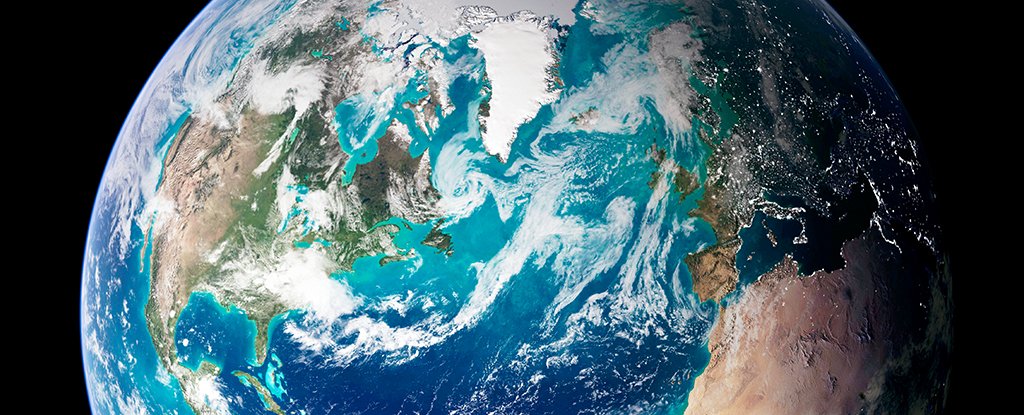Products You May Like
If Earth had a pulse, it might be The Atlantic Meridional Overturning Circulation (AMOC) – a swirl of ocean currents that carries tropical heat north towards polar waters.
Over the past century this global heartbeat has eased, slowing to a speed not seen in more than a millennium. New research based on a range of indices has now bolstered views that the weakening isn’t a trivial one, and critical transition is imminent.
The study conducted by climate scientist Niklas Boers from Freie Universität Berlin in Germany is just the latest to point out how the AMOC appears to be inching towards a major tipping point.
His research, recently published in Nature Climate Change, affirms the AMOC can remain relatively stable in two, distinct states.
One is the robust form we’ve become accustomed to over much of modern history, driven by significant amounts of warm water from the tropics evaporating on its journey north and becoming increasingly dense as its temperature drops and salinity increases.
This process not only shuffles heat energy throughout the ocean and atmosphere, it keeps the mix of minerals and organic compounds that fertilize ocean waters moving freely.
The other is a far weaker system with sluggish waters taking their time distributing warm, nutrient-rich water around the Atlantic.
Though studies on the AMOC were rare prior to recent decades, there have been signs that the enormous conveyor belt isn’t what it used to be.
Given the complexities of climate models, the exact reason for the apparent shift is unknown, leaving room to debate the exact prognosis and implications. But evidence is mounting that increasing run-off from melting ice is messing with the salinity and temperature in a way that effectively puts the brakes on the whole system.
According to some models, the AMOC might tolerate a degree of slowdown, remaining relatively stable even as the poles melt and possibly even returning to its former glory with little trouble.
But not everybody agrees. As Boers writes in his study, there’s good reason to suspect the network of currents might not only collapse into a weak form that’s stubbornly stable, but are right on the verge of doing so.
“The results presented here hence show that the recently discovered AMOC decline during the last decades is not just a fluctuation related to low-frequency climate variability or a linear response to increasing temperatures,” Boers writes.
“Rather, the presented findings suggest that this decline may be associated with an almost complete loss of stability of the AMOC over the course of the last century, and that the AMOC could be close to a critical transition to its weak circulation mode.”
The consequences of a drastic and sustained weakening of the currents aren’t fully understood. By some measures it might cool the planet, potentially even counteracting the worst of global warming.
But before you get too excited, this isn’t necessarily the good news you’d imagine. Huge shifts in the distribution of energy and nutrients in the Atlantic’s currents would have profound consequences on weather systems and ecology across Europe and the Americas, with massive economic effects on everything from agriculture to tourism.
What the Amazon might gain in rainfall, for example, Europe might lose in productivity.
While Boer is confident his modelling indicates the AMOC is on the cusp of tipping, there’s no easy way to predict timing of geological events. Even a sudden switch could take years to occur, if not decades.
The only thing that is clear is how our actions risk dragging us closer to the inevitable.
“So the only thing to do is keep emissions as low as possible,” Boer told Damian Carrington from The Guardian.
“The likelihood of this extremely high-impact event happening increases with every gram of CO2 that we put into the atmosphere.”
This research was published in Nature Climate Change.
